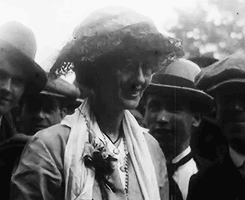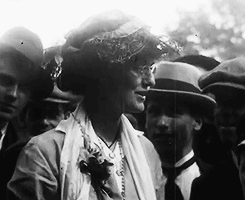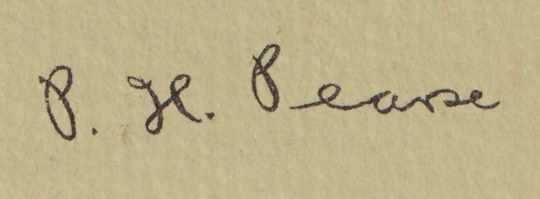Photo


Constance Georgine Markievicz, née Gore-Booth (1868 – 1927) was an Irish politician, revolutionary, nationalist, suffragette and socialist. [X]
119 notes
·
View notes
Photo




Britain’s Colonial Legacy — [Tudor conquest of Ireland] [X]
155 notes
·
View notes
Photo

“But while Ireland is not free I remain a rebel, unconverted and unconvertible. There is no word strong enough for it. I am pledged as a rebel, an unconvertible rebel, to the one thing – a free and independent Republic.” — Constance Markievicz
108 notes
·
View notes
Photo


Funeral of Michael Collins; Glasnevin Cemetary, Dublin (1922) [X]
36 notes
·
View notes
Photo


Countess Markievicz becomes first woman elected to British parliament. [X]
On 28 December 1918, she was the first woman elected to the British House of Commons, though she did not take her seat — protesting British rule in Ireland. Along with the other Sinn Féin TDs, she formed the first Dáil Éireann (Irish government). She was also the first woman in the world to hold a cabinet position as Minister for Labour from 1919 to 1922.
487 notes
·
View notes
Photo






IRA (Irish Republican Army) examine all passers at Ulster border (1922) [X]
179 notes
·
View notes
Photo








Ennis, Co. Clare (Ireland, 1949)
76 notes
·
View notes
Photo




British General Macready takes the final salute as the British troops leave Ireland (1922)
16 notes
·
View notes
Photo




General Mulcahy and his men salute the last British troops to leave Ireland (1922)
18 notes
·
View notes
Photo




General Mulchahy hoists the Republican Flag over the Irish Command Headquarters. (British Troops Leave Ireland | 1922)
76 notes
·
View notes
Photo



Dublin, Easter 1916
20 notes
·
View notes
Photo

Three generations stand outside their stone cottage, Ireland, 1927. Photo: Clifton R. Adams/National Geographic
564 notes
·
View notes
Photo










Signatures of some of the Irish Revolutionaries of 1916.
739 notes
·
View notes
Photo






Funeral of Michael Collins (Dublin, 1922)
26 notes
·
View notes
Photo



Bernadette Devlin was an Irish feminist, socialist, and republican, and at age 21, she became the youngest female Member of Parliament. She spoke passionately, eloquently, intelligently, and unforgivingly in support of Catholics during the civil rights movement in Northern Ireland. In 1969, after the keys to New York City were presented to her, Devlin gave them to the Black Panther Party, because she better identified with them and their plight than with the conservative Irish-Americans she had met on her visit to the U.S. In 1972, the British Home Secretary made a defense for the British soldiers who shot 26 unarmed Irish civilians during the Bogside Massacre. In the middle of his speech, Devlin stood up and punched him. She stated that it was “coldly, and calmly done” and that she did it to deliver “a simple, proletarian protest.” When asked if she was going to apologize, she responded, “I’m just sorry I didn’t get him by the throat.”
10K notes
·
View notes


